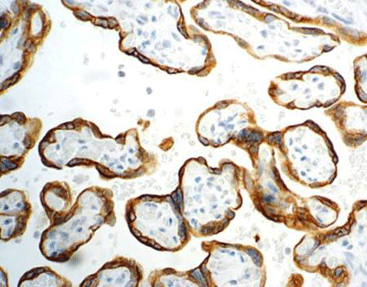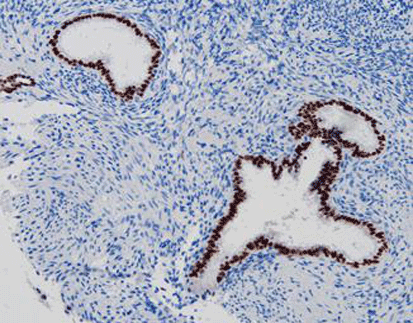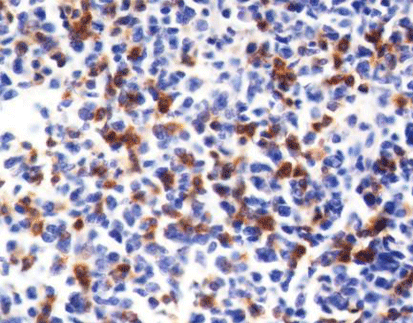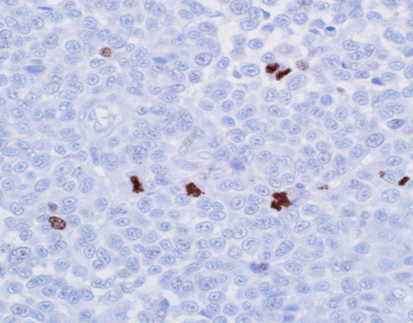 PRODUCT CATEGORY
PRODUCT CATEGORY
CONTACT US



6 Cuizhu St, Zhong Yuan Qu, Zheng Zhou Shi, He Nan Sheng, China, 450001
Placental Alkaline Phosphatase(BSB-47),MMab
Placental alkaline phosphatase is a variant enzyme encoded by the ALPP gene. PLAP has been found in normal human placental nourishment layer cells, testicular sperm cell tumors, and ovarian cancer.
The detection of alkaline phosphatase in the serum is a marker for the diagnosis of ovarian and testicular cancer. Mainly used to diagnose various types of ovarian, testicular and extra-gonadalgermcelltumor such as seminoma embryonic carcinomas, gonadoblastoma,yolk sac tumor,fluff membrane cancers, etc.
Staining Tissue
[As Figure shows]
Placenta tissue stained with PLAP
[Intended Use]
Placental alkaline phosphatase is a variant enzyme encoded by the ALPP gene. PLAP has been found in normal human placental nourishment layer cells, testicular sperm cell tumors, and ovarian cancer.
The detection of alkaline phosphatase in the serum is a marker for the diagnosis of ovarian and testicular cancer. Mainly used to diagnose various types of ovarian, testicular and extra-gonadalgermcelltumor such as seminoma embryonic carcinomas, gonadoblastoma,yolk sac tumor,fluff membrane cancers, etc.
[Specifications]
| Product Name | Placental Alkaline Phosphatase(BSB-47),MMab |
| Catalog No. | CPM-0311 |
| Intended Use | IVD, RUO |
| Species Reactivity | Human; others not tested |
| Cellular Localization | Cytoplasm / Nucleus |
| Antibody Type | Mouse Monoclonal |
| Clone | BSB-47 |
| Format and Volume | Ready-to-use: 1mL, 3mL, 6mL Concentrated: 0.1mL, 0.2mL and 1mL |
[Datasheets & SDS]
| IVD Datasheet (IFU) | ↕️ Download |
| RUO Datasheet (IFU) | ↕️ Download |
| SDS sheet | check with sales |
[Storage and Validity]
Store at 2~8°C. Avoid freezing.
Maintain temperature below room temperature during transport, ensuring it does not exceed one week.
Related Product







 PRODUCT CATEGORY
PRODUCT CATEGORY



 Chat
Chat

 message
message

 Quote
Quote


